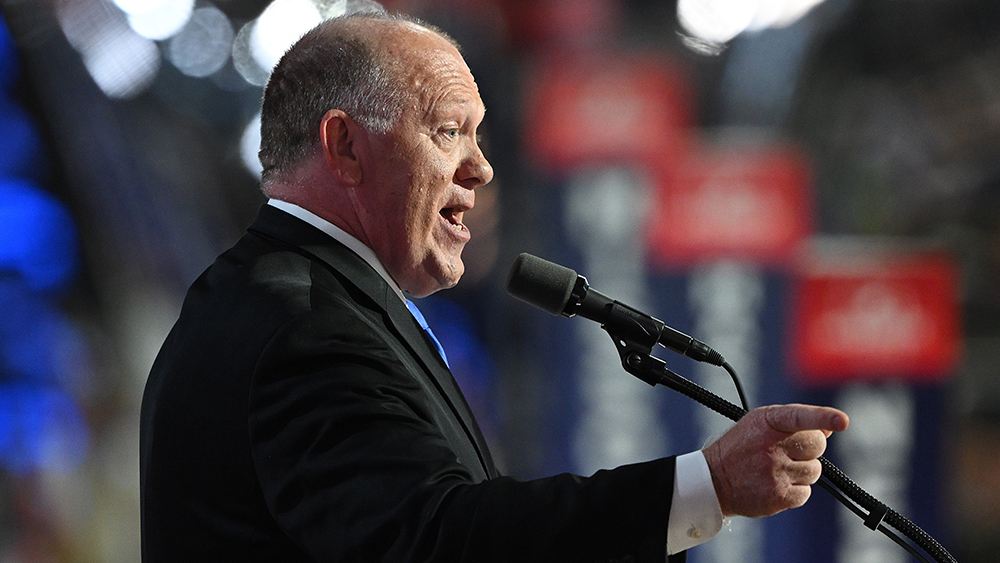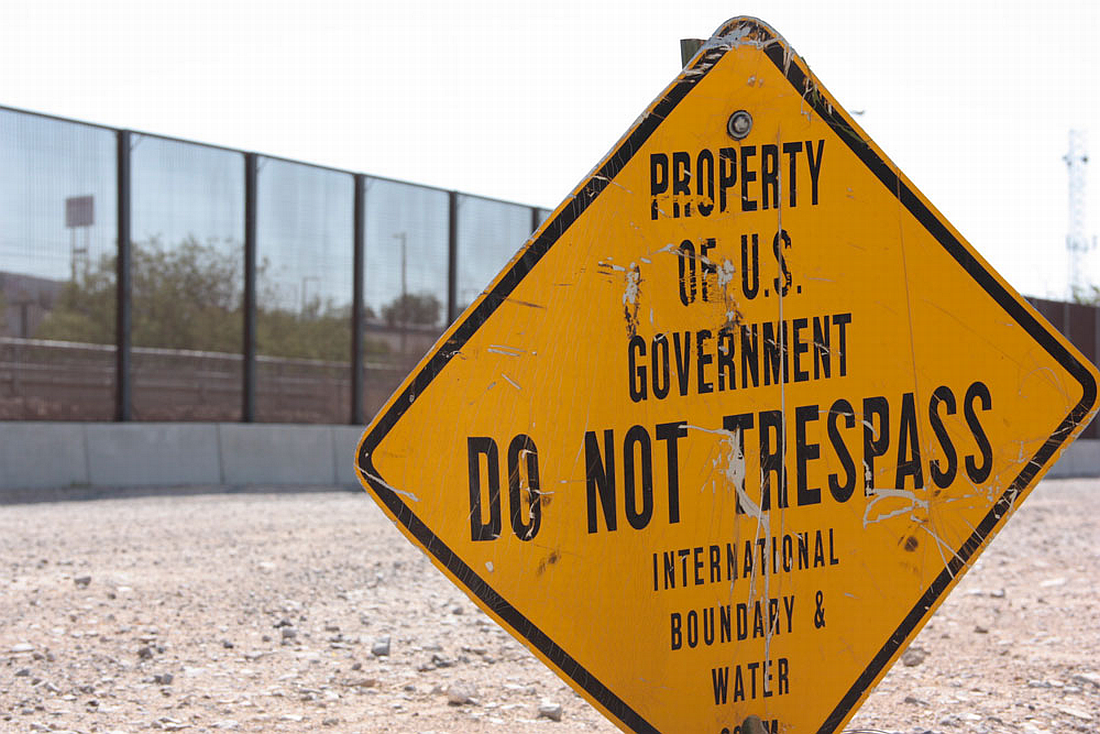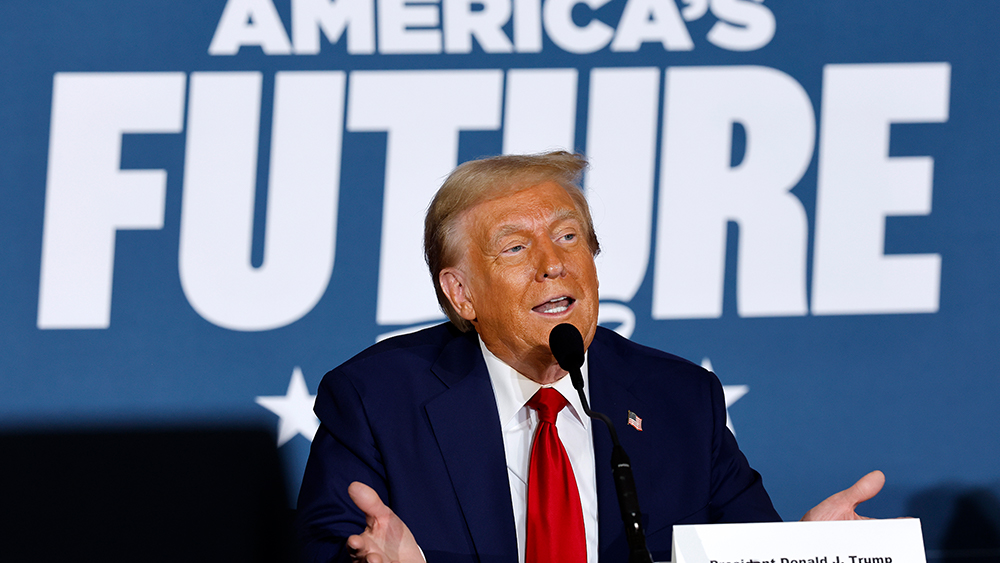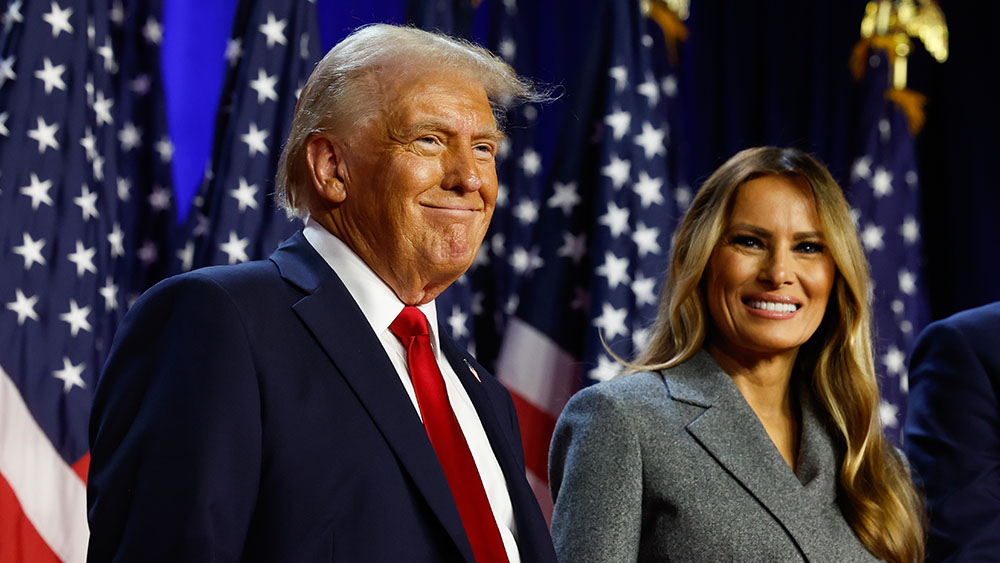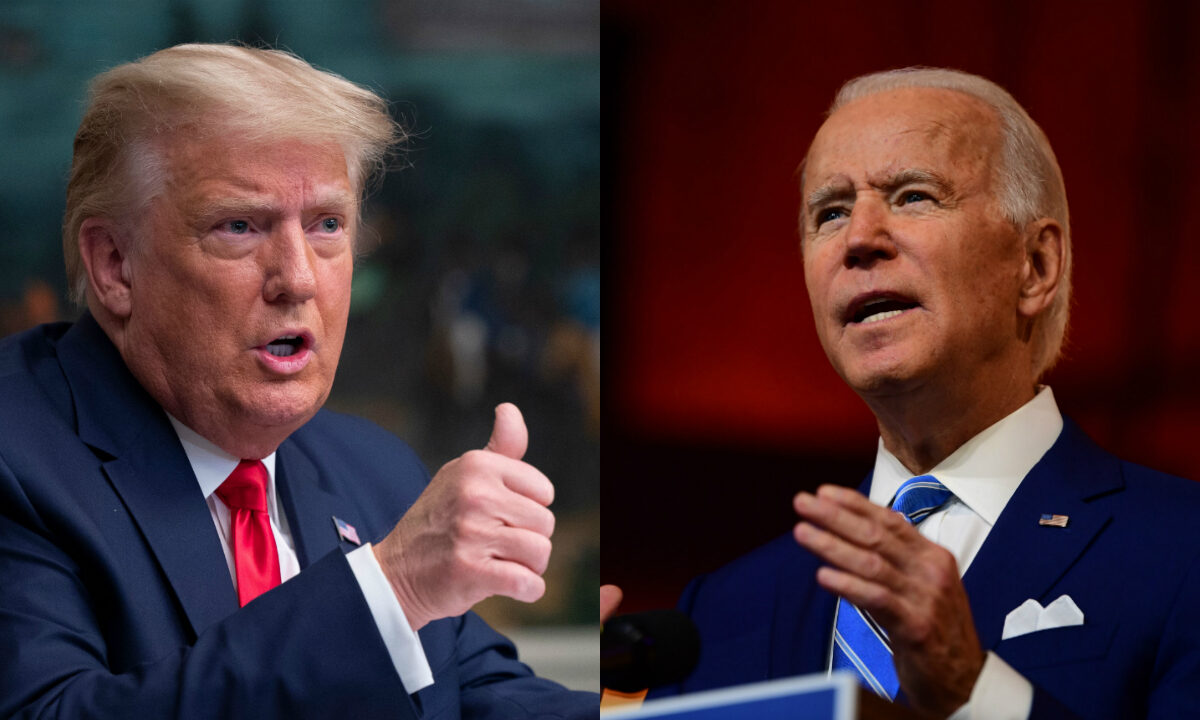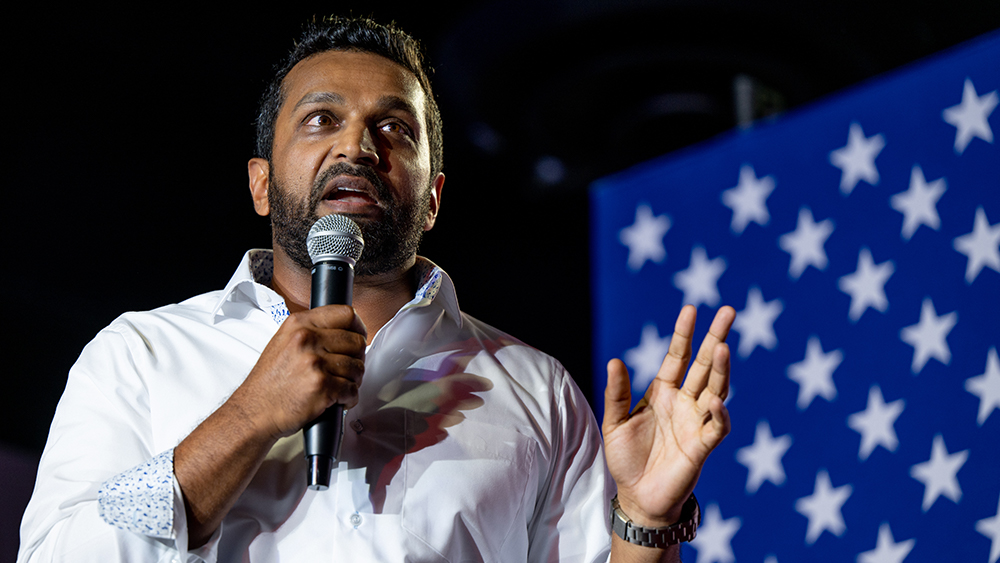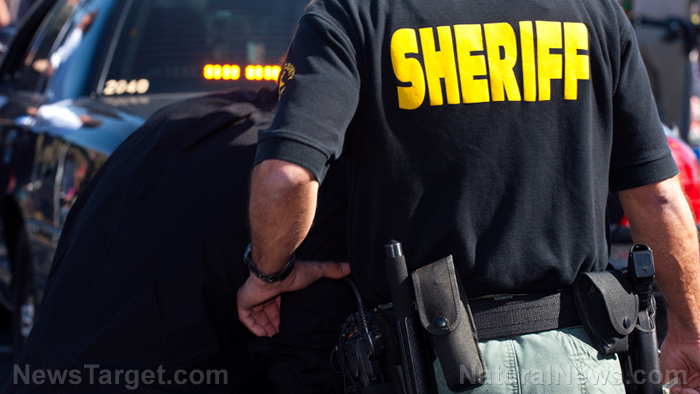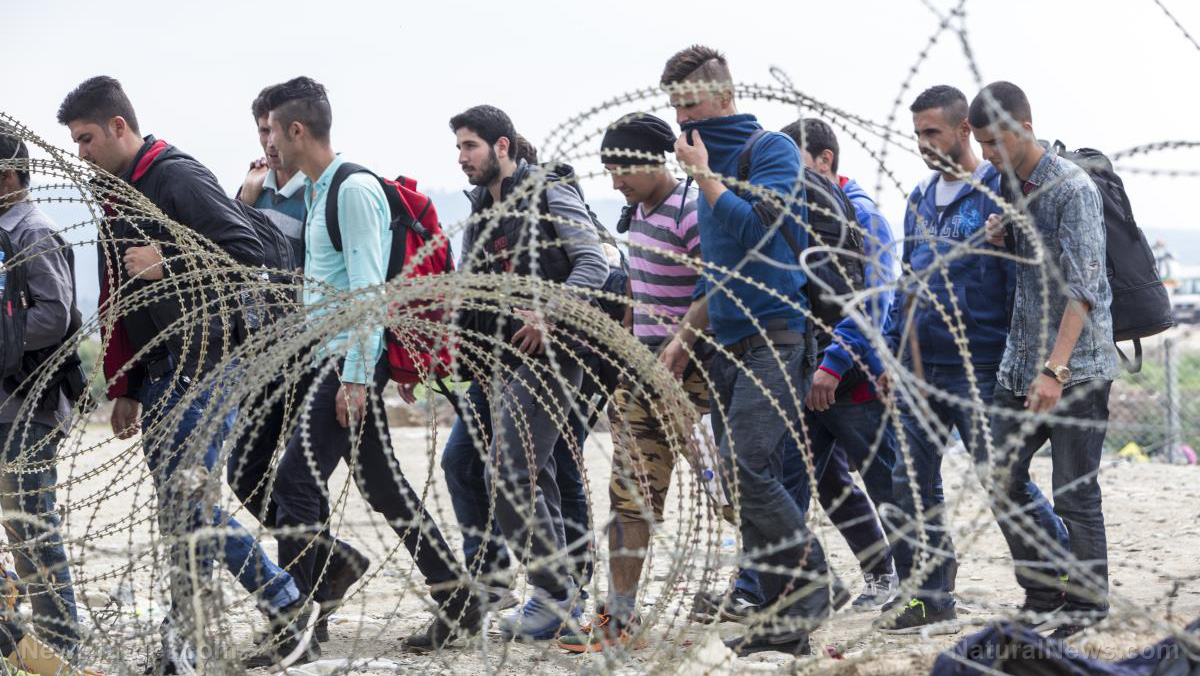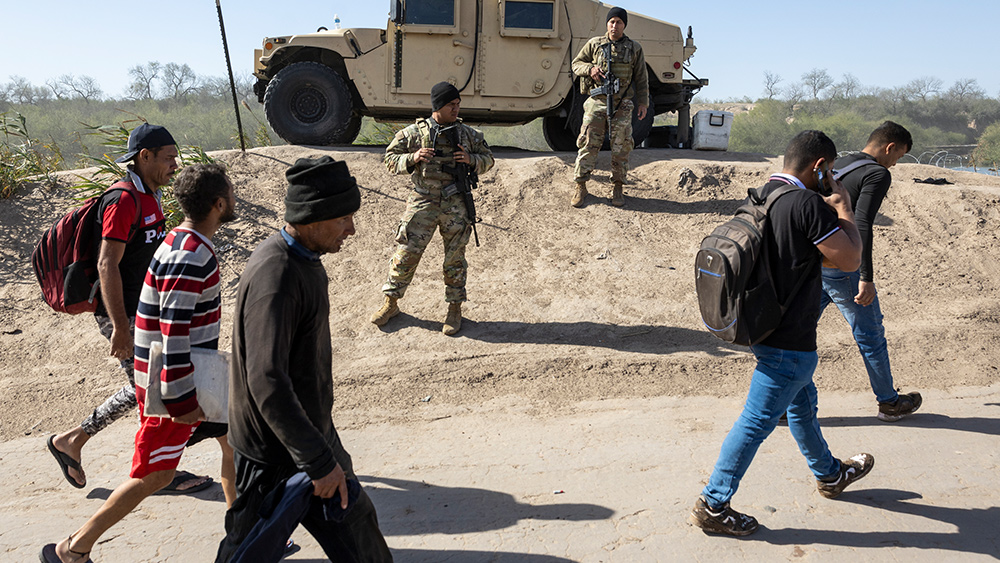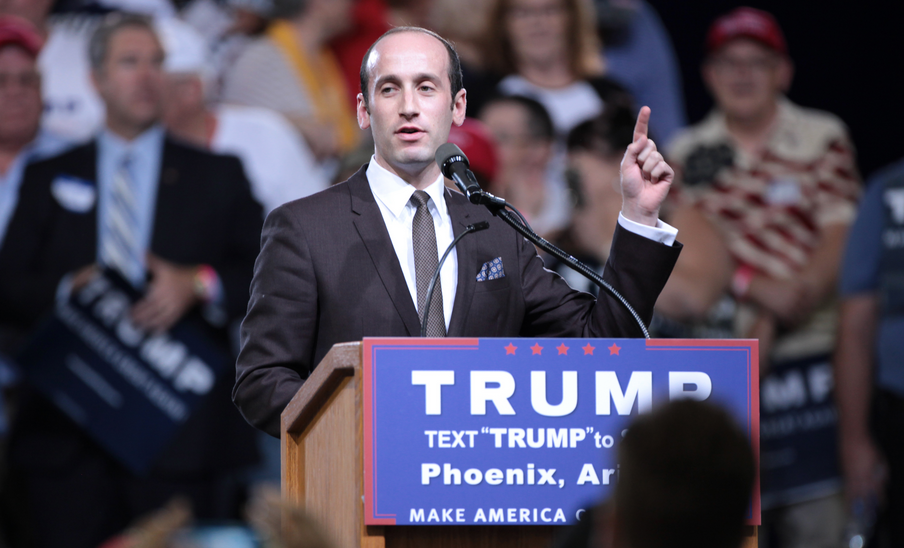Pardons and payback: A blueprint for Trump’s DOJ to free the patriots and punish the real J6 plotters
12/17/2024 / By News Editors

In recent weeks there has been a chorus of Americans calling for President Trump to pardon all of the January 6 defendants on Day 1. Many also want the truth of government involvement on January 6 to be revealed. While these calls for blanket pardons are well-intentioned, pardons might not even be the best possible outcome for January 6 defendants and may actually hamper investigations of government involvement at the Capitol.
(Article by William Pope republished from Revolver.news)
This article takes a step back and attempts to look at the complexities of what’s actually best for January 6 defendants, what’s best for President Trump, and what’s best for future investigations into January 6. I’m going to propose an alternative path forward—releasing but not pardoning all imprisoned January 6 defendants on Day 1—and an alternative permanent solution—exoneration through the courts rather than pardons. I’m going to discuss how the issue of investigating January 6 is intertwined with both permanent exoneration and President Trump’s legacy. I’m also going to go into some of the complexities related to investigating government operations on January 6 and suggest a novel approach for carrying it out successfully even if the Biden administration destroys files. This will also include a novel method for removing problem employees. Last, I’ll touch on how President Trump can use ironic facts and humor to strategically communicate his decision on defendant relief.
As a January 6 defendant myself, I’ve been deeply involved in these issues for the last four years. I was entirely peaceful at the Capitol but was indicted on 30 years worth of federal charges. Because of that, I put my doctoral dissertation on hold to represent myself and fight for my freedom in court. Along the way, I used my familiarity with January 6 video to help many other defendants and their attorneys prepare for trial. I filed motions that exposed the first undercover police and FBI agents in the crowd. I’ve beaten three of my charges pre-trial. This year, I won a motion that allowed me to take the first court-ordered Capitol tour in American history. And I recently won the first motion to continue a January 6 trial date into the Trump Administration. Had I not won a continuance, I would be in front of a jury right now. But since I’m not currently in trial, I’ve begun contemplating the issue of pardons and how we might destroy the January 6 cases permanently.
The ideas I’m proposing are intended to add nuance to the public conversation on pardons, and I hope they stimulate a deeper level of discussion and better solutions moving forward. Ultimately, only President Trump can decide how his administration handles the January 6 cases, and he will be considering these issues from a different perspective than anyone else. In this article, I try to surface factors President Trump might take into account, but I realize that he may weigh those factors differently than I would. Even though there are many ways to approach this issue, I am confident that whatever President Trump decides will bring January 6 defendants relief.
What Is Trump Thinking Right Now?
President Trump has repeatedly expressed his willingness to pardon January 6 defendants, so let’s recap what he’s previously said as a way to glean insight into his current thinking.
On March 11, 2024, President Trump announced on Truth Social that one of his first acts would be to “free the January 6 Hostages being wrongfully imprisoned.” So, the need to act quickly has been on President Trump’s mind for a while. On July 31, 2024, shortly after his nomination at the RNC convention, Trump was asked about past comments to pardon defendants charged with assault, and he said, “Absolutely I would. If they’re innocent, I would pardon them.” He then compared the prosecution of January 6 defendants to the recent Hamas protests and the 2020 Antifa attacks on the Portland courthouse and noted that J6ers had been treated much differently. From this, we can conclude that President Trump is open to pardoning even more serious charges and that he believes these cases violated the principles of equal justice under the law, which fully justifies presidential pardons.
More recently, President Trump sat down for an interview on Meet The Press, and when asked about January 6 pardons, he reaffirmed many of his past statements. He stressed that he would likely take action on the first day, and he emphasized that defendants who are suffering in prison need relief.
However, President Trump also noted that relief would be decided case by case, and he expressed an interest in looking into questions about Ray Epps and other provocateurs like ScaffoldCommander. This seems to indicate that President Trump, while prioritizing speedy defendant relief, wants to investigate what actually happened on January 6 and whether the government was involved.
If what we glean from these implied objectives is accurate, President Trump is faced with a dilemma. The task of adequately reviewing each case prior to the inauguration is impossible due to the amount of work required to assemble and analyze video of each defendant’s actions. Furthermore, until Trump is sworn in as president, he will not have the complete defendant data that’s needed to conduct a full review. The challenge of this task is complicated by the pressure to act fast. Defendants need relief on Day 1. This would be a difficult needle for President Trump to thread even without considering the political complexities involved. Unless President Trump is willing to forfeit either immediate relief or a thorough case-by-case review, he’ll need to pursue a more unconventional solution than pardons.
What Would Be Best for Defendants? And What Would Be Best for Trump?
To start, what would the optimal outcome for January 6 defendants look like? The top priority, especially for those in prison, is immediate relief. This is why so many are calling for Day 1 pardons. However, immediate relief is not the only aspect to consider. Defendants would also like their records cleared. A pardon only forgives convictions; it does not erase them. For this reason, a pardon is not the best outcome for defendants because it will not result in exoneration.
Consider that some employers ask applicants if they’ve ever been convicted of a crime. Defendants who are exonerated can answer no to those questions, while those who are convicted and then pardoned must still answer yes. So if pardoned, these allegations will not go away. And the January 6 convictions in the eyes of most defendants represent wrongful convictions. Evidence was withheld. Due process rights were violated. Charges were excessive. The venue wasn’t fair. And the full truth of government involvement on January 6 is still not known.
Most of us defendants don’t want wrongful convictions hanging over us for the rest of our lives. We want the full truth. Fifty years from now, historians shouldn’t be speculating if we were the feds. We want every fed and informant publicly identified so that nobody confuses them with us. So let’s also consider if blanket pardons would be the optimal path for investigating January 6. The answer is no. Day 1 pardons would not vet defendants for relationships with the government. There are several charged defendants (including Ray Epps) that many Americans have questions about. If pardoned, a defendant’s involvement could still be investigated after the fact, but the Trump administration would lose the ability to leverage their current charges for cooperation. If President Trump instead takes a slower route to pardons, he could offer immunity to individuals who provide quality information about government involvement to speed up investigations. Another tangential consideration for President Trump is the looming civil cases against him related to January 6 that could drag on for years. If a D.C. court pins the blame for January 6 on Trump, then he might be required by a judge to pay damages. However, if the Trump administration uncovers evidence of a conspiracy within federal agencies to manufacture events at the Capitol to hurt President Trump, it could redirect the fault towards those bad actors and deflate the civil cases. This is another reason to investigate government involvement.
That leads us to another important consideration. Are Day 1 blanket pardons the best political outcome for President Trump? The answer to this is mixed. Immediate blanket pardons would certainly be the quickest and easiest administrative solution and would allow President Trump to flex his power and then move on to other priorities. Day 1 pardons would also be overwhelmingly applauded by President Trump’s base. However, pardoning every January 6 defendant would also draw a strong negative reaction from the mainstream media and from President Trump’s political opponents. It’s likely that producers at MSNBC are already lining up the most inconvenient footage from January 6 to be aired the moment President Trump issues pardons. I would bet CNN will do another interview with January 6 defendant (and provocateur) Pam Hemphill, who is now vocally anti-Trump and anti-pardon. I’m not suggesting by any means that Trump should cower in the face of possible criticism from the fake media. Quite the contrary—Trump would certainly brush off the negative coverage and likely even turn it into an advantage. Even so, there is a question of whether that is the particular news cycle Trump would prefer immediately after the inauguration, especially when, as I’m about to propose, there is an even more aggressive approach that provides relief to the January 6 defendants while putting the regime and their lackeys in the media still more on the defensive.
Another consideration for President Trump is that if there were January 6 defendants who were working for the government on January 6, they might still be working for agencies and be used in the future to intentionally do things that hurt President Trump politically. So a blanket pardon without an investigation of government involvement would come with unknown risks.
There’s also the under-explored problem of incomplete defendant data. Most who are calling for Day 1 pardons don’t realize that the DOJ typically sits on a few dozen unsealed January 6 cases at any given time. Because of this, the official DOJ case numbers are always higher than even the best-kept public database of January 6 defendants. This disparity means that President Trump would not know who would be covered by a blanket pardon until after he gets into office and has access to the complete defendant data. This creates a dilemma for President Trump, because while there is overwhelming pressure for him to give defendants immediate relief, it’s possible that the DOJ might have the January 6 pipe bomber’s indictment under seal, for instance, or that the DOJ might file hundreds of last-minute cases charging fed provocateurs. If U.S. Attorney Matthew Graves unseals the pipe bombers case at 11:59 p.m. on Inauguration Day, and President Trump (not yet aware of that development) announces a blanket pardon covering all January 6 defendants at noon, immediately after he is sworn in, that hypothetical pardoning of the pipe bomber could become a huge controversy. So the issue of Day 1 pardons is not as simple as many make it to be.
It would also become much more complicated if President Trump were to attempt a partial pardon on Day 1. For instance, some have suggested only pardoning a known list of non-violent defendants. I would fall into that category of defendants, but I realize that if President Trump were to announce during his inaugural address that only a list of non-violent defendants would be pardoned immediately while other defendants would be processed on a case-by-case basis, conservatives on social media would immediately be outraged. This would create an unnecessary firestorm that would divide the coalition President Trump is trying to launch his agenda with.
So with all this considered, there are more disadvantages to Day 1 pardons than there are advantages. That doesn’t mean defendants can’t be given immediate or lasting relief. It only means that we should open our minds to other approaches.
A Plan for Immediate Defendant Relief
We all know that at noon on January 20, 2025, President Trump will once again have pardon power, but let’s not forget that President Trump will also have the power to control the entire Executive Branch. Pardon power is a single tool in a president’s toolbox, not the only tool, or necessarily the best tool, for bringing January 6 defendants immediate and lasting relief.
To begin, it’s important to review the relevant constitutional language. Under Article II, Section 2 of the Constitution, the President has the “power to grant reprieves and pardons for offenses against the United States.” While a pardon forgives a conviction, “reprieves” can be interpreted much more broadly. It’s generally accepted that a reprieve can include postponing or suspending a sentence for a period of time. Though normally applied as a commutation, the power to grant reprieves would also allow President Trump to immediately release all imprisoned January 6 defendants on Day 1 without giving them full pardons or commutations. This would then allow the administration to gather the complete defendant data from the DOJ to conduct case reviews. Such temporary releases are also allowed by 18 U.S. Code § 3622 and 28 CFR § 570.38, in the form of short furloughs from prison, but President Trump will have the further authority to grant reprieves with or without furlough conditions attached.
The option of Day 1 reprieves has many benefits over Day 1 pardons. For instance, a reprieve would blunt media criticism. Rather than CNN pointing to Trump forgiving a defendant who might have some difficult facts on video, a reprieve would come without forgiveness of those facts. It would also allow defendants with more serious charges to demonstrate for a period of time that they are good American citizens who deserve to be released. Trump could also include furlough conditions for the reprieve that would discourage defendants from breaking the law while on reprieve. President Trump could also emphasize that defendant conduct during the reprieve could be a consideration when evaluating full pardons. This would give rowdier defendants a strong motivation to stay out of trouble.
Of course, the goal would be to eventually provide all January 6 defendants with more permanent relief. However, immediate temporary relief would enable the Trump administration to assess sealed cases before taking permanent action. It is important to note that January 6 cases are currently at different stages of the legal process, and not every defendant is in prison. Many defendants have already completed their sentences, while others are still awaiting trial or sentencing, or are awaiting a reporting date to prison. There are also defendants who have been charged but not yet arrested. These situations also require immediate relief. A reprieve from President Trump could involve instructions for the Bureau of Prisons to immediately cease the intake of January 6 defendants, and for the Department of Justice to halt all arrests and pending search warrants. President Trump could also grant reprieves for any defendants who are currently on probation, allowing them to be relieved of burdensome reporting requirements and to travel freely throughout the United States.
For cases that are still pending, President Trump could have his Justice Department move in each case to vacate future proceedings. However, while judges will typically grant these requests when they come from the government, in some January 6 cases judges have forced trials and other proceedings to continue. This possibility means that motions to stay without a reprieve are not a guaranteed form of immediate relief. However, a more novel use of the presidential power to grant reprieves would be for President Trump to order a reprieve that indefinitely postpones all future proceedings in pending January 6 cases to allow for further administrative review. Judge Scarsi in the Hunter Biden case recently noted the Supreme Court’s ruling in Ex parte Garland, 71 U.S. 333 (1866), that a president’s Article II Section 2 powers extend to any period of time, including while charges are pending. This gives President Trump the power to effectively suspend the court calendar in these cases. If any district judges tried to push forward, they would be up against a constitutional wall.
The reprieve alternative to Day 1 pardons would give defendants immediate relief, would overwhelmingly be approved by President Trump’s base, would blunt criticism from the mainstream media, and would allow for a deeper investigation into government conduct at the Capitol on January 6. But with all that said, President Trump will still need to pursue a path to permanent relief.
A Plan for Lasting Exoneration
Full pardons are a great option to have available for permanently giving defendants relief, but they aren’t the only option, or, in my opinion, the best option. A pardon grants forgiveness for a conviction but leaves the conviction on a defendant’s record. For this reason, it would be better for a January 6 defendant to be found not guilty by a judge or jury or for their case to be dismissed because the accusations were unfounded or because the government egregiously violated constitutional rights.
Consider the corruption case against former Alaska Senator Ted Stevens, where D.C. prosecutors withheld exculpatory evidence from Stevens. The longtime Republican senator was indicted right before the 2008 election, and then Stevens immediately exercised his right to a speedy trial, insisting that the trial take place before the election. That’s not an ideal legal position to be in, but Stevens had no good options, and a D.C. jury found Stevens guilty just days before the election, which Stevens then lost by less than 2 percent of the vote. However, after his trial it was discovered that the DOJ had engaged in outrageous conduct that violated Stevens’ civil rights. Because of that, Attorney General Holder moved to vacate Stevens’ sentencing date and dismiss the indictment. Judge Emmett Sullivan—a D.C. judge who has also presided in January 6 cases—found that the prosecution had been “permeated by the systemic concealment of significant exculpatory evidence” and granted the dismissal. The end result was that Ted Stevens was exonerated, but at the cost of his senate seat.
Compare that outcome to the recent Hunter Biden pardon. Hunter pleaded guilty to avoid a damaging trial, but he had not yet been sentenced when his father pardoned him. Essentially, Hunter was in the same pre-sentencing stage that Senator Stevens had been in when his case was dismissed. Judge Scarsi vacated Hunter Biden’s sentencing date and dismissed the case because a pardon had been issued, but Judge Scarsi declined to dismiss the indictment containing the underlying criminal allegations against Hunter.
Here we have to contrast two possible paths: pardons vs. exoneration in court. Depending on the path taken, the allegations against a defendant will either be dismissed, or the allegations will remain. If January 6 defendants receive a pardon from President Trump, any defendants who have already pleaded or gone to trial will have the same legal outcome as Hunter Biden: charges will be forgiven, but the allegations will remain. However, if Trump instead grants a temporary reprieve in all cases, the Trump Administration can then evaluate whether January 6 defendant civil rights were violated, which could justify convictions being vacated and indictments being dismissed.
Obviously, total exoneration would be better than a pardon for defendants, but how would it benefit President Trump? After all, pursuing exoneration would require more work than issuing pardons. As with all things, other factors should be considered. An investigation into these cases has the potential to surface new information about government misconduct that could change the entire narrative of January 6. If done well, a January 6 investigation might permanently enhance President Trump’s legacy. If defendants are exonerated in court, President Trump also won’t have to endorse more controversial pardons in assault cases (or risk the wrath of his base if he doesn’t).
And if convictions are vacated in court, the blame would shift from defendants onto the government. Instead of CNN running footage of the worst assault charges, the news cycle will be about government misconduct and the weaponized legal process. It’s also possible that an investigation could turn up evidence that there were more FBI informants like Michael Alan Jones who were assaulting police at the Capitol, which would shift our entire understanding of violence on January 6.
To pull off exoneration, the Trump administration will need to convince D.C. judges to vacate convictions. At a minimum, this would require revealing egregious due process abuses, such as evidence being withheld. That precedent was already set by Judge Sullivan in the Ted Stevens case. However, another possible justification for vacating convictions might be to introduce a theory of entrapment by outrageous government conduct. This form of entrapment defense is allowed by the Criminal Resource Manual (CRM No. 648) and draws upon United States v. Russell, 411 U.S. 431 (1973), where the Supreme Court left open the possibility that they might “someday be presented with a situation in which the conduct of law enforcement agents is so outrageous that due process principles would absolutely bar the government from invoking judicial processes to obtain a conviction.” There is no greater opportunity to trailblaze this into new legal precedent than the events of January 6.
I suggested this defense in my own case in my Motion to Compel Raindrop Theory Discovery (United States v. Pope, 21-cr-00128, Document No. 252), and this entrapment defense could be affirmed if the Trump DOJ assembles evidence and admits that “outrageous government conduct” tainted every January 6 case. This would justify government motions to vacate. One benefit of using an outrageous government conduct justification for exoneration over pardons would be that it avoids precedent that might impact the public perception of any federal response to future protests against Trump. Consider how politically difficult it would be for the President if hundreds of liberal protesters are arrested by the federal government during his term. The media will be comparing their treatment to January 6 defendants and demanding their release. To avoid this scenario, I would first advise President Trump to prohibit the use of felony charges against non-violent protesters. Second, I would advise exoneration due to outrageous government conduct rather than pardons. If there is a condition (like entrapment) that justifies January 6 exoneration but would be absent for future protesters burning down a Target in Minneapolis, President Trump will avoid difficult comparisons.
So what would entrapment by outrageous government conduct look like? My raindrop theory motion and related filings explain it in more detail than I have room for here, but essentially we already know that the National Guard was withheld and that multiple agencies intentionally failed to prevent the events at the Capitol. There’s also a growing body of evidence that agency-connected provocateurs and other undercover operatives contributed to how events unfolded at the Capitol. If this is fully documented, then the entire narrative of January 6 and Trump’s first term will shift, and this emerging truth will justify D.C. judges vacating hundreds of January 6 convictions and indictments. Organizing an Investigation of Government Conduct. For an investigation to succeed, the Trump administration will need to determine the scope, speed, and thoroughness expected. These factors will influence the methods used and the team assembled.
Organizationally, an investigation can be done in several ways. Typically, audits of this kind would either be done through an Office of Inspector General or through an Independent Counsel. It’s also possible to form some other investigative task force that’s more closely connected to the White House. Congressional committees also have the power to conduct an investigation of January 6, but so far the efforts of the Republican House majority have disappointed. I also wouldn’t trust the DOJ and DOD Inspector Generals on this since their reports related to January 6 have so far failed to surface the full truth. To me, that leaves an independent counsel or White House task force as the best options. However, regardless of how a team is organized, it will only succeed if it has staff who are trustworthy, driven, and bring the right expertise to the task at hand.
The team also needs brilliant and aggressive leadership. Having spent some time with President Trump’s former Assistant Attorney General Jeff Clark, I know him to have the legal genius and the knowledge of how federal agencies operate to make him a prime candidate to lead or advise an investigation of this kind. Jeff has also developed a strong familiarity with what happened on January 6, which is an invaluable quality. Obviously, President Trump might have some other position in mind for Jeff, but if Jeff is willing to join what might be the most important investigation in American history, he should be considered. President Trump might also consider names like Matt Gaetz or Louie Gohmert.
The investigative team should not be staffed with former 3-letter agency types who crawl out of the woodwork to volunteer their services. The hallmark of infiltrators is to suddenly appear on the scene like cockroaches out of no where. The investigative team should also not consist of many, if any, January 6 defense attorneys. While I have come to know and appreciate several of them, their tendency is to advocate for blanket pardons because they have clients with difficult facts on video. This prevents them from being unbiased about the facts. Some defense counsel also have clients who were provocateurs on January 6 or who cooperated with the government and/or January 6 committee to hurt other defendants and even Trump. The investigative team should realize that if there were defendants like Ray Epps or others who were working for the government, these defendants had attorneys who may have been managing their side of the coverup. However, many of these defense attorneys have also developed a deeper factual and legal understanding of January 6 than can be found elsewhere, so it might make sense to bring some of them on eventually to review case files or to advise the team on where to look for due process violations and other legal issues.
There are a handful of January 6 researchers who have now accumulated years of expertise in analyzing the January 6 video. There are several individuals I have worked with directly and trust, whom I would recommend to be brought on to the team if possible. Each of them would have the impact of a hundred untrained staff members. I cannot overstate how crucial video skills are. In my own case, I’ve been able to outmaneuver the government on several occasions because my mastery of January 6 video allowed me to uncover and piece together information. If an investigative team is going to track down federal agents in the crowd, they need people who can quickly find relevant media. President Trump should also reject the advances of overly ambitious but minimally talented congressional staff who might be job-seeking. With few exceptions, most of them do not possess the demeanor needed to perform this job well. If additional staff members are required to fill out the team, it would be advisable to search as far outside of Washington, D.C. as possible. Quality people who haven’t been tainted by Washington can be recruited from Republican state attorney general offices or state auditor offices. Having previously worked for Kansas Legislative Post Audit (essentially a state-level OIG), I know firsthand that there are extremely talented, unbiased researchers to be found outside of the federal government.
The size of the team should depend on the scope of the investigation to be done. Initially, it might be best to have a team of fewer than a dozen solid people and then to add staff as needed. Since the scope of this investigation could be highly dependent on what information emerges, we do not know how long it will take to do it well. However, since the outcome of this work will affect hundreds of defendants, thoroughness should be balanced with the need for speed. The investigative team should be required to report initial findings to President Trump within his first hundred days in office and to advise whether it would be best to proceed with pardons or if a pathway to exoneration can be pursued in the near future (prior to the full investigation being completed).
Conceptualizing an Investigative Plan
Since there is a need for speed, where would an investigation of this type start, and how can information be gathered quickly? I believe the investigation should cover the full scope of government, and then the scope can be tightened as needed. The investigation should be both targeted and emergent. This means that while we are already aware of some topics that need to be investigated, we understand that new threads of information will likely surface that may be far more important for us to pull. That means we shouldn’t initially pour all resources into Ray Epps or the pipe bomber or any of the other topics that currently interest us. Yes, there are still important questions that need to be answered, but the first step is to gather as much data as possible.
But what would gathering data look like?
Obviously, President Trump can order every federal agency to deliver all data they have related to January 6 to the investigative team. However, this approach unfortunately has multiple opportunities for failure. First of all, it’s likely that bad employees in the government will intentionally withhold information to obstruct the investigation. Second, there is a very real possibility that the Biden administration is already furiously destroying files. Third, the Biden administration might arrange partisan bureaucrats within the chain of command who will have (or claim to have) no direct knowledge of where the secrets are hidden so that they can tell President Trump that they have no awareness of whether such information exists.
As a thought exercise, let’s assume the Trump administration runs into all three of these problems, making it more difficult for a January 6 investigation to launch. What can be done? First of all, the transition team should hold out the threat of criminal charges for anyone in Biden’s administration who destroys documents. That would be a threat they should take seriously. One problem the Biden administration faces if they delete information is that we already have public documents and documents in January 6 defendant discovery that refer back to the existence of other information or files the government possesses but has not produced. If the Biden administration sloppily destroys files that have been referenced elsewhere, the Trump administration can open a criminal investigation into that destruction. This deterrent alone might preserve a good portion of files related to January 6. Still, there may be some information that is so far removed from public reference that it could conceivably be hidden or destroyed without leaving a trace.
As a thought exercise, let’s assume the Trump administration encounters all three of these problems, making it more difficult for an investigation into January 6 to be launched. What can be done? First of all, the transition team should threaten criminal charges against anyone in Biden’s administration who destroys documents. This threat should be taken seriously. One problem the Biden administration faces if they delete information is that we already have public documents and documents in January 6 defendant discovery that refer to the existence of other information or files held by the government but not yet produced. If the Biden administration carelessly destroys files that have been referenced elsewhere, the Trump administration can initiate a criminal investigation into that destruction. This deterrent alone might preserve a significant portion of files related to January 6.
Fortunately, even if they shred every document, we still have publicly available video from January 6. If there were egregious government operations at the Capitol, the Biden administration can’t erase federal operatives from the video, especially since the video is duplicated worldwide. That leads to something else that’s difficult to destroy—people. Unless thousands of federal employees, contractors, and informants who have connections to operations on, before, and since January 6 all simultaneously disappear, the Trump administration can still collect information from them directly. But who do we ask to get answers? Due to the compartmented nature of agency operations, there are perhaps only a few people who see the full picture of what happened on January 6. Most government employees may have only a siloed view of one aspect of an operation. If the few people who know the full picture resign from government after they destroy or hide documents, it might be impossible to unravel the full truth.
At the very least, it will greatly hinder any investigation. Counteracting this might require a novel method that’s never been tried in government at this scale before: surveying the silos. Consider that a doctor will have a patient drink an iodine solution before doing an imaging scan in order to enhance the visibility of the organs and blood vessels and potential problems that he otherwise wouldn’t be able to see. This same principle can be applied to any government organization. While the Biden administration mandated that every federal employee take a COVID vaccine, the Trump administration can mandate something far more potent: that every federal employee tell the truth.
On Day 1, President Trump could issue an executive order requiring all agencies to turn over all information they possess related to January 6. This executive order could require every federal employee in the DOD, DOJ, FBI, DHS, CIA, and all other intelligence agencies to fill out an electronic form (subject to an investigation) to answer whether they were at the Capitol on January 6 or if they possess any information related to January 6. (President Trump might also consider using this method to surface other classified information that he believes bureaucrats might be hiding from him, such as information related to the assassination attempts against him.)
The legal precedent for surveying information traces all the way back to the very first executive order signed by President George Washington, which required federal departments to provide him with detailed information about their operations. President Trump would be fully justified in doing the same thing but with more specific questions and on a much larger scale. A survey wouldn’t eliminate the possibility of bureaucrats trying to obstruct the investigation, but if a federal employee, contractor, or informant lies in response to an investigative survey mandated by the President, they would be falsifying an official document that is subject to a federal investigation, which is a 20-year felony under 18 U.S. Code § 1519 (and there are other criminal charges that could be pursued). Since every federal employee would be taking the same survey, they would also be facing the prospect of a coworker providing information on their actions that could criminally implicate them if they withhold or falsify information about their involvement in their own survey response.
A federal employee could also try to obstruct the investigation by not responding to the survey, but that would invite other punitive measures. If employees fail to take the survey within the allotted time, the Trump administration could immediately suspend their security clearances and place them on indefinite unpaid leave for an act of insubordination. Unlike termination, indefinite unpaid leave does not qualify for unemployment benefits. This means it could become financially painful, and some of these employees might choose to resign in order to pursue other jobs rather than honestly answer the survey. And if these employees refuse to respond to the survey, they will also need to obtain expensive legal counsel. Suspended pay and increased legal expenses are a challenging combination to endure and would increase their motivation to tell the truth. However, if their insubordination continues following a long unpaid investigation of their conduct, these problem employees should be terminated for cause. (This would have the added benefit of saving DOGE some work, so President Trump should consider using this method for other agencies that need downsized.)
There’s still the possibility that Biden might pardon key figures like General Milley or, more broadly, pardon anyone in government connected to January 6. That could take some options away from a future investigation, but creative strategies can still be leveraged to get to the truth. For instance, General Milley could still be questioned under oath about his involvement on and before January 6, and he would be unable to assert Fifth Amendment rights (since telling the truth will no longer incriminate him if he’s been pardoned by Biden for it). However, if Milley lies under oath about the events of January 6, and the investigative team can prove he lied by using other sources, Milley can then be prosecuted for perjury. A Biden pardon would not extend to future crimes, such as lies told by Milley under oath after Trump is sworn in. This same strategy could be used on other government employees. An employee survey will likely result in a wide range of new leads related to government conduct on and before January 6. Survey answers would go directly to a database, allowing investigators to quickly and easily identify employees who have information to provide.
Those employees can then be interviewed and asked to turn over relevant materials. Leads would then be pursued by the investigative team, and a justification for full exoneration of January 6 defendants would be developed. Again, this is a novel concept, but the mechanisms are there for it to result in the most efficient and successful investigation in American history and exoneration for J6ers. Thoughts on Addressing the Media regardless of whether Trump pardons January 6 defendants or pursues a path to exoneration, there will be partisans in the mainstream media who criticize him for what he chooses to do. From my perspective as a former college public speaking teacher (who was fired from teaching by a former Chairman of the Joint Chiefs for January 6), I think it’s important for President Trump to be mindful of how he communicates his decisions on defendant relief. My suggestion would be for President Trump to make the announcement to the White House press pool and to point out inconvenient facts of January 6 that the media has ignored.
If Trump is in the mood to troll the press, here are some ideas: To begin, President Trump should announce that he is ending the January 6 prosecutions so that his Justice Department doesn’t have to begin arresting the dozens of liberal journalists who went onto Capitol grounds and inside the Capitol. After all, the Biden DOJ has insisted these prosecutions aren’t about prosecuting free speech, and under those standards, President Trump shouldn’t let freedom of the press be treated differently than other First Amendment rights (speech is not a lesser right than freedom of the press!). President Trump should then play a clip from the Senate Wing Doors announcing that he is pardoning notorious shaman Jacob Chansley and follow that by adding that he is also pardoning Ashley Gilbertson (the uncharged New York Times photographer who walked in the door right in front of Chansley) and the two journalists who walked in the door right behind Chansley. President Trump should at the same time announce he is pardoning Young Kim, the photographer who climbed through a window to become the 5th person in the Capitol. Luke Mogelson, a journalist for the New Yorker, also climbed through a window to get inside the Capitol. President Trump should flash the thumbs up or down like Caesar in the Colosseum and ask the press pool if they want him to pardon or prosecute Mogelson. If the press pool fails to yell out in Mogelson’s favor, Trump should turn to his nearby attorney general, Pam Bondi, and instruct her while flashing a thumbs down to look into the case.
President Trump should then show a video clip of L.A. Times photographer Kent Nishimura pushing past several police officers to get inside the Columbus Doors and ask the press pool whether he should pardon or prosecute Nishimura and his LA Times colleagues for seditious conspiracy. Then Trump should point out that the Oath Keepers peacefully entered the same doors about a minute behind Nishimura and were severely prosecuted. Perhaps President Trump could insert a few details about how Merrick Garland’s DOJ suborned perjury by getting Officer Dunn and Agent Lazerus to testify against the Oath Keepers for things that video now proves were entirely made up. Trump should then show a clip of Kelly Meggs (who was non-violent but sentenced to more than twelve years) helping police wave people out of the Capitol. This humorous added context can help take the heat off of President Trump for granting leniency to defendants who had more serious (yet bogus) charges.
President Trump should then point out that the Biden DOJ has ignored Russian state-affiliated RT and Sputnik journalists who went in the Capitol, and he should ask the press pool if the DOJ should investigate whether Russian collusion played into Merrick Garland’s decision not to prosecute them in the same way they prosecuted non-violent American citizens who were at the Capitol. President Trump should also pardon Roger Moore and his ITV news crew, who walked into the Capitol and later won an award for a documentary they created based on their footage. (I would certainly endorse pardoning Mr. Moore since he was kind enough to note in his documentary how my brother and I were entirely peaceful and seemed curious about events that were happening around us.)
President Trump could also consider pardoning the handful of Antifa-affiliated independent journalists who were at the Capitol and the far-left Status Coup reporter Jonathan Farina, who was perhaps the first person on Capitol grounds and who spent a considerable amount of time on the west front and inside the tunnel. While he’s at it, President Trump could add that he’s considering not bringing charges against self-identified antifa, Logan Grimes, who brought a handgun to D.C. and infiltrated the crowd near the Ellipse. Likewise, Trump could consider not bringing charges against Grimes’ antifa colleagues Jonathan Hart Kelly and Dempsey Mikula for being on Capitol grounds, even though Kelly was the last person on the scaffolding and had to be physically removed by police. President Trump could also signal that he would consider not charging plainclothes FBI agent Baker Doughty for going onto Capitol grounds as long as he cooperates with the investigation and if a review of his conduct shows he wasn’t engaged in an FBI conspiracy to undermine President Trump. If Biden pardons General Milley, President Trump should joke that he had considered including Milley on his own list of January 6 pardons (even though Milley’s conduct was treasonous and far more deserving of prison than anyone at the Capitol), but that Biden had beaten him to it. Finally, Trump should add that since the Biden administration had declined to prosecute the millions of criminal foreigners who illegally entered our country, he could not in good conscience allow American citizens who walked into the Capitol to continue being persecuted for far less. This is just a sample of what President Trump could include in his remarks, but the right mix of inconvenient facts and mocking humor can go a long way to blunt the fallout from negative coverage. President Trump could also have a lot of fun with this!
The Path Forward for the Trump Justice Department
In summary, pursuing vacated convictions and indictments would be a better outcome for January 6 defendants than Day 1 pardons. This would also be an opportunity to establish the truth of what really happened on January 6, and any alarming discoveries could result in a road map for cleaning out government agencies. For President Trump, pursuing defendant exoneration rather than pardons would be politically advantageous and would enhance his presidential legacy. Beyond these immediate January 6 issues, the Trump DOJ should also pursue restitution for defendants who have suffered from weaponized government. January 6 defendants have burnt through savings, lost jobs, been divorced, lost custody of children, had their businesses fail, and some have taken their own lives. For the last four years we have been under the most intense media scrutiny in American history. Now most employers consider us to be too radioactive to hire. We’ve also been banned by big tech companies and debanked. This ideological discrimination is not unlike past racial discrimination in the era of white and black water fountains or segregated schools, and it should have no place in America. Weaponized government has also impacted our First Amendment rights since many of us are now banned for life from using social media platforms like Facebook and Instagram because we were arrested on January 6 charges. This means that the government was effectually able to censor my speech in the public space by bringing allegations against me in court. The Trump DOJ should task its Civil Rights and Antitrust Divisions to investigate these issues and pursue corrective legal action. Civil penalties could be pooled into a compensation fund for January 6 defendants and others who have been victimized by these companies.
The final loose ends that President Trump must address are related to the need for agency reform. Entrapment schemes and due process violations can never be allowed to happen again. Agencies should never again be allowed to illegally use FISA warrantless surveillance against political dissidents. Corrupt bureaucrats need to be banned from federal employment and, in some instances, criminally prosecuted. The DOJ should be prohibited from pursuing felony civil disorder charges against non-violent protesters. The January 6 cases have also drawn needed attention to abuses by the Bureau of Prisons. President Trump’s wildly successful First Step Act should now be followed by a Second Step Act to implement additional criminal justice and prison reforms. President Trump is returning to the White House with an overwhelming mandate to transform government and American society through the power and influence of his office. But the path forward for this transformation cannot fully succeed unless the damage related to January 6 is resolved and the full truth is revealed. For the last four years, the events of January 6 have been used by the Biden administration to advance censorship, bad legal precedent, and weaponized government. President Trump now has the opportunity to use the events at the Capitol to advance good legal precedent, defendant relief, and government reform so that in the future, January 6, 2021, will be favorably remembered as a crucial turning point in American history.
Read more at: Revolver.news
Submit a correction >>
Tagged Under:
big government, Capitol riot, conspiracy, corruption, current events, deception, deep state, Donald Trump, exoneration, false-flag, FBI, freedom, J6, Liberty, patriot, politics, presidential pardon, rational, rioting, White House, Xpost
This article may contain statements that reflect the opinion of the author
RECENT NEWS & ARTICLES
COPYRIGHT © 2017 PATRIOT NEWS

